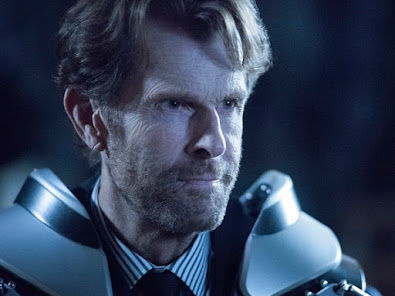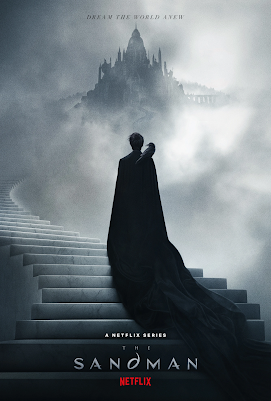News has sadly broken that science fiction author Greg Bear has passed away at the age of 71, following a series of strokes.
Born in 1951 in San Diego, California, Gregory Dale Bear studied writing at San Diego State University from 1968 to 1973. Remarkably, he sold his first science fiction short story, "Destroyers," at the age of just 16. In 1970 Bear was part of a group of science fiction writers, SFF fans and comic book fans who decided to host the very first San Diego Comic-Con. In the years since, the San Diego Comic-Con has become arguably the single biggest and most important such mass media convention in the world.
After publishing short fiction throughout the 1970s, Bear published his first two novels (
Hegira and
Psychlone) in 1979. In 1983 he published the novelette
Blood Music, which immediately won him the Nebula Award and Hugo Award. He expanded the story into
a full-length novel, published in 1985 and arguably his best-known single novel. Almost simultaneously he published the other contender for that title,
Eon.
The two books are both, in their own way, a reconsideration of classic SF ideas originally presented by Arthur C. Clarke. Blood Music is something of a revamp of Clarke's Childhood's End, presenting the transformation of humanity into a new form via rapidly enhanced biological evolution. Eon is a riff on Rendezvous with Rama, with humanity exploring a huge artificial construct that enters Earth orbit in the form of an asteroid. Hidden inside the asteroid is a portal leading into an infinite corridor known as "The Way," which transcends both time and space. Bear would revisit the Way in sequel Eternity (1988) and prequel Legacy (1995).
Bear wrote numerous other significant SFF works. His only major contribution to fantasy came in the form of Songs of Earth and Power, a duology consisting of The Infinity Concerto (1984) and The Serpent Mage (1986). He returned to SF with The Forge of God (1987) and its sequel, Anvil of Stars (1992), in which Earth is destroyed by a hostile alien intelligence but some humans are able to escape into space, where they plot vengeance. He flirted with cyberpunk with Queen of Angels (1990), and joined the "Mars rush" (a burst of Mars-focused novels from a number of authors, including Ben Bova and Kim Stanley Robinson) with Moving Mars (1992). The Nebula-winning Darwin's Radio (1999) explored the weaponisation of evolution.
Bear was noted as a writer of hard science fiction, but critic David Langford also recognised Bear's love of massive explosions and apocalyptic events, including melting the human race into sentient goo in one book, blowing up Earth entirely in The Forge of God, removing Mars from the Solar system in Moving Mars and wrecking a transdimensional world of infinite size in Eternity. Bear took mock-umbrage from this characterisation.
Greg Bear became a dominant writer of science fiction, often incorporating starships and far-future settings, at a time when many SF writers were focusing on near-future stories (particularly in the cyberpunk movement). He and two other contemporary writers in this mode, Gregory Benford and David Brin, became known as the "Killer Bs," for their critical acclaim and dominance in this period (the 1980s and early 1990s). They were occasionally named as successors to the "Big Three" of 1950s and 1960s SF, namely Isaac Asimov, Arthur C. Clarke and Robert Heinlein, although they failed to match the earlier trio's name recognition outside of the SF field or in terms of sales (for example, none of Bear's work has been adapted to television or film, although Eon has been optioned several times).
In the late 1990s, Bear joined Benford and Brin on working on The Second Foundation Trilogy, an officially-authorised sequel series to Asimov's classic SF series. Benford wrote Foundation's Fear (1997), whilst Bear penned Foundation and Chaos (1998) and Brin rounded off the project with Foundation's Triumph (1999).
Unlike many of his peers, who had a tendency to look down on media tie-ins, Bear, was also happy to work in other people's playgrounds. He penned the Star Trek novel Corona in 1984 and the Star Wars novel Rogue Planet in 2000, which acted as both a sequel to The Phantom Menace and a prequel to the New Jedi Order saga. In 2011-13 Bear agreed to flesh out the ancient backstory for the Halo series of video games by penning the Forerunner Saga trilogy, consiting of Cryptum, Primordium and Silentium. Bear incorporated previous Halo mythology and his own ideas, which in turn became canon for subsequent video games.
Bear suffered a series of strokes in recent days which led to him being hospitalised before passing away. He is survived by his wife Astrid and two children. The field of science fiction and fantasy fiction is a poorer place for his loss.







